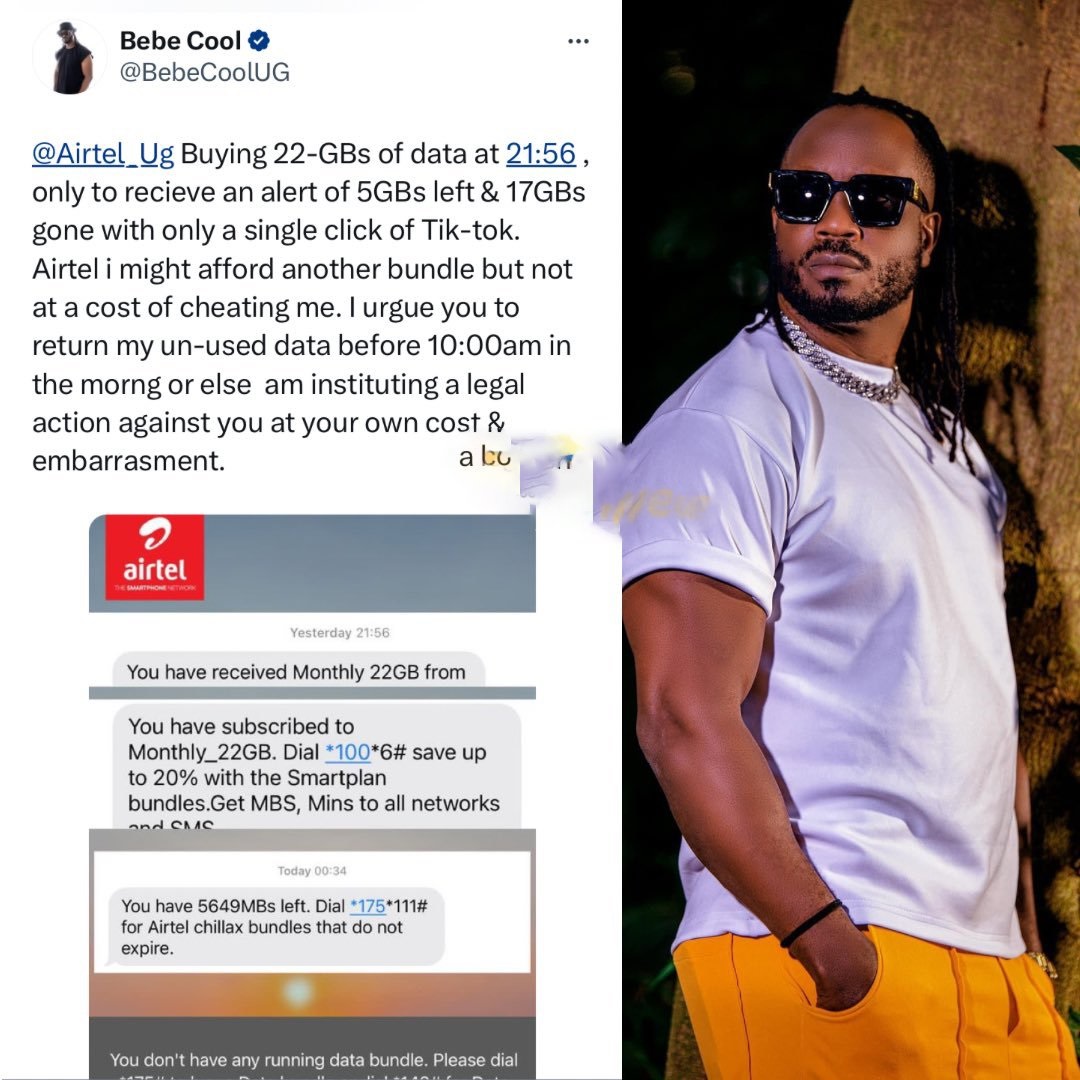
On Tuesday, January 16, 2024, the celebrated artist Bebe Cool made waves across social media, utilizing his now-former Twitter handle to vent his frustration with Airtel Uganda, a major telecommunications service. In a direct and assertive tone, Bebe Cool revealed that at 21:56, he purchased a substantial 22 GBs of data, only to be dismayed when a subsequent alert indicated a mere 5 GBs remaining.
Shockingly, 17 GBs had vanished into thin air with just a single click while using TikTok. Feeling utterly devastated, Bebe Cool made a firm decision not to purchase another data bundle, firmly convinced that he had fallen victim to a digital swindle.
Taking matters into his own hands, Bebe Cool issued a stern ultimatum to Airtel, demanding the immediate return of his vanished data before 10:00 am the following morning. The artist underscored the seriousness of his demand, warning that non-compliance would force him to pursue legal action against the telecommunication giant, at their own expense and embarrassment.

Bebe Cool’s lamentation about the rapid depletion of data has striking resonance, as it echoes the sentiments of other public figures, including Sheilah Gashumba, who have also recently expressed their discontent with the same issue.
This incident serves as a stark reminder of the importance of transparency and reliability in the provision of telecommunication services. Consumers, especially high-profile individuals like Bebe Cool, are increasingly intolerant of discrepancies and demand accountability from service providers.
As Airtel Uganda faces the repercussions of Bebe Cool’s public outcry, it prompts a broader conversation about the need for telecommunication companies to address and rectify issues promptly, ensuring customer satisfaction and trust in their services.





